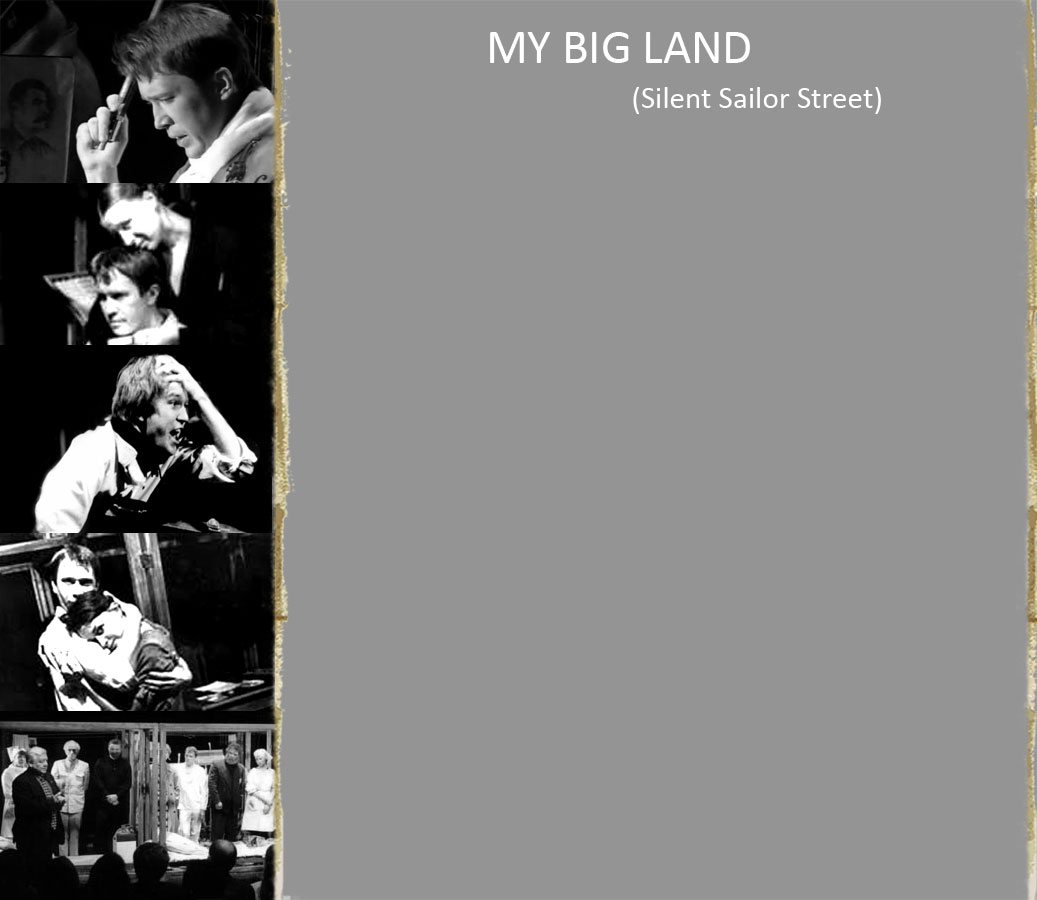Aleksandr Galich dated the commencement of his work on
My Big Land as spring of 1945. The dark days of the Soviet "fight against cosmopolitism" that followed on the heels of victory, however, were the wrong climate for the appearance of a drama whose heroes were Jews. The author was forced to put his idea aside until "the Thaw" of the 1950s, a more liberal period of Soviet history given rise by Nikita Khruschev's denouncement of Stalin.
The play, whose characters, language, and the issues it touched upon made a sharp contrast with other dramatic works of the period (which came to be known as "the Nonconfrontational Age"), was completed in 1956. The plot – the story of the short life of a young man from a small Jewish town, born to be a great musician but ending his days in a WWII hospital train – attracted the attention of many directors. Before it was ever published, it was picked for staging by several troupes, including The Young Actors' Studio, which was later to become the famous Sovremennik Theater, and was slotted to become that theater's second production after its triumphant
Alive Forever.
According to the few eyewitnesses, the production promised to be a major event in the cultural life of Russia; but it was not to be. It was performed once – at the "approval meeting", where it was banned by the Party officials in charge of drama and theater. In his book
Dress Rehearsal, the playwright quotes the words addressed to him at the time by one such high-level official: "Do you seriously expect, Comrade Galich, for a new theater in the center of Moscow to be putting on a play about how Jews won the World War?!"
A member of the ill-fated production's cast, Oleg Tabakov, had spent many years fighting for the approval of
My Big Land. Starting in the early 1970s, when he became Artistic Director of the Sovremennik, he repeatedly appealed to various authorities with requests to revive the production and proposals for a TV adaptation. But in the Stagnation period of Soviet history, all his efforts were doomed to failure.
My Big Land finally saw the stage in recent years, first as the graduate project of Mr. Tabakov's
Moscow Art Theater Studio School class of 1989 and later at his "Tabakerka" Theater, where it premiered in 1990. As it turned out, the play had lost none of its freshness for all the years of censorship. The tale of the talented young violinist (Yevgeny Mironov), the destinies of his family, his friends and his love,
My Big Land is about the conflict of generations, a drama for all times. It is a simple story of an ordinary life, an ordinary love and an ordinary death in the war. The production played for 12 years to full houses and had a hugely successful tour of the U.S. The character of Abram Shvartz is the best stage performance of the well-known actor and director Vladimir Mashkov, who recently adapted the play for his film
Papa. The production became a sort of school that had graduated two generations of The Tabakov Theater's resident actors.
(No longer in repertory)
